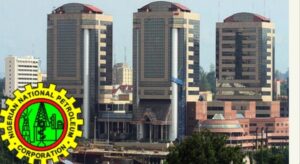Why NNPC Increased Petrol Prices and Stepped Back from Its Role with Dangote On October 7, news broke that the Nigerian National Petroleum Company (NNPC) would no longer act as the sole off-taker for Dangote Refinery’s products. Insiders revealed to TheCable that this role had become an “unbearable burden” for NNPC, especially as it grapples with a $6 billion debt to international fuel suppliers. The financial pressures facing the company have significantly impacted its ability to ensure a consistent petrol supply. In a recent Bloomberg interview, Aliko Dangote, chairman of Dangote Industries Limited, called on the federal government to eliminate fuel subsidies, labeling them as unsustainable. Consequently, NNPC will now allow other marketers to purchase fuel directly from the Dangote refinery at market prices, a move that the government had initially sought to avoid. On September 14, the federal government had mandated that the refinery sell exclusively to NNPC, with independent marketers required to acquire petrol through the national oil company. However, the House of Representatives criticized this setup on September 26, urging the government to permit independent marketers to purchase directly from the refinery. With NNPC stepping back from its distribution role, insiders anticipate a rise in petrol prices at gas stations across the country, as additional costs will likely be passed on to consumers. However, there is hope that as the market opens up, competition will help stabilize prices and supply chains in the coming days.
Why NNPC Increased Petrol Prices and Stepped Back from Its Role with Dangote

NNPC
On October 7, news broke that the Nigerian National Petroleum Company (NNPC) would no longer act as the sole off-taker for Dangote Refinery’s products.
Insiders revealed to TheCable that this role had become an “unbearable burden” for NNPC, especially as it grapples with a $6 billion debt to international fuel suppliers. The financial pressures facing the company have significantly impacted its ability to ensure a consistent petrol supply.
In a recent Bloomberg interview, Aliko Dangote, chairman of Dangote Industries Limited, called on the federal government to eliminate fuel subsidies, labeling them as unsustainable. Consequently, NNPC will now allow other marketers to purchase fuel directly from the Dangote refinery at market prices, a move that the government had initially sought to avoid.
On September 14, the federal government had mandated that the refinery sell exclusively to NNPC, with independent marketers required to acquire petrol through the national oil company. However, the House of Representatives criticized this setup on September 26, urging the government to permit independent marketers to purchase directly from the refinery.
With NNPC stepping back from its distribution role, insiders anticipate a rise in petrol prices at gas stations across the country, as additional costs will likely be passed on to consumers. However, there is hope that as the market opens up, competition will help stabilize prices and supply chains in the coming days.
TRENDING SONGS
 NPMA Appeals to Nigerian Government for Compensation After Lagos Market Fire
NPMA Appeals to Nigerian Government for Compensation After Lagos Market Fire
 Rest Every Four Hours, FRSC Issues Safety Guide for Fasting Motorists
Rest Every Four Hours, FRSC Issues Safety Guide for Fasting Motorists
 NNPC Boss Ojulari Bags UK Energy Institute Fellowship
NNPC Boss Ojulari Bags UK Energy Institute Fellowship
 Shock in Anambra: Bride Disappears Moments Before Wedding
Shock in Anambra: Bride Disappears Moments Before Wedding
 Nigerian Woman Returns ₦330 Million Accidentally Credited to Her Account
Nigerian Woman Returns ₦330 Million Accidentally Credited to Her Account
 APC Don Reach Morocco?’ VeryDarkMan Reacts to Seyi Tinubu Poster
APC Don Reach Morocco?’ VeryDarkMan Reacts to Seyi Tinubu Poster
 Bride Breaks Down in Tears as Wedding Meals Were Kept Secretly While Guests Go Home Hungry
Bride Breaks Down in Tears as Wedding Meals Were Kept Secretly While Guests Go Home Hungry
 Odogwu by Day, Robber by Night: How Marriage Joy Turned Into Tragedy
Odogwu by Day, Robber by Night: How Marriage Joy Turned Into Tragedy
 Nigerian Officials Allegedly Pocket N4–6B Weekly Through Smuggling Cartels at Seme–Badagry Border
Nigerian Officials Allegedly Pocket N4–6B Weekly Through Smuggling Cartels at Seme–Badagry Border
 Ahmad Yerima: Naval Officer to Face No Sanctions After Clash with Wike – Matawalle
Ahmad Yerima: Naval Officer to Face No Sanctions After Clash with Wike – Matawalle
Share this post with your friends on ![]()













